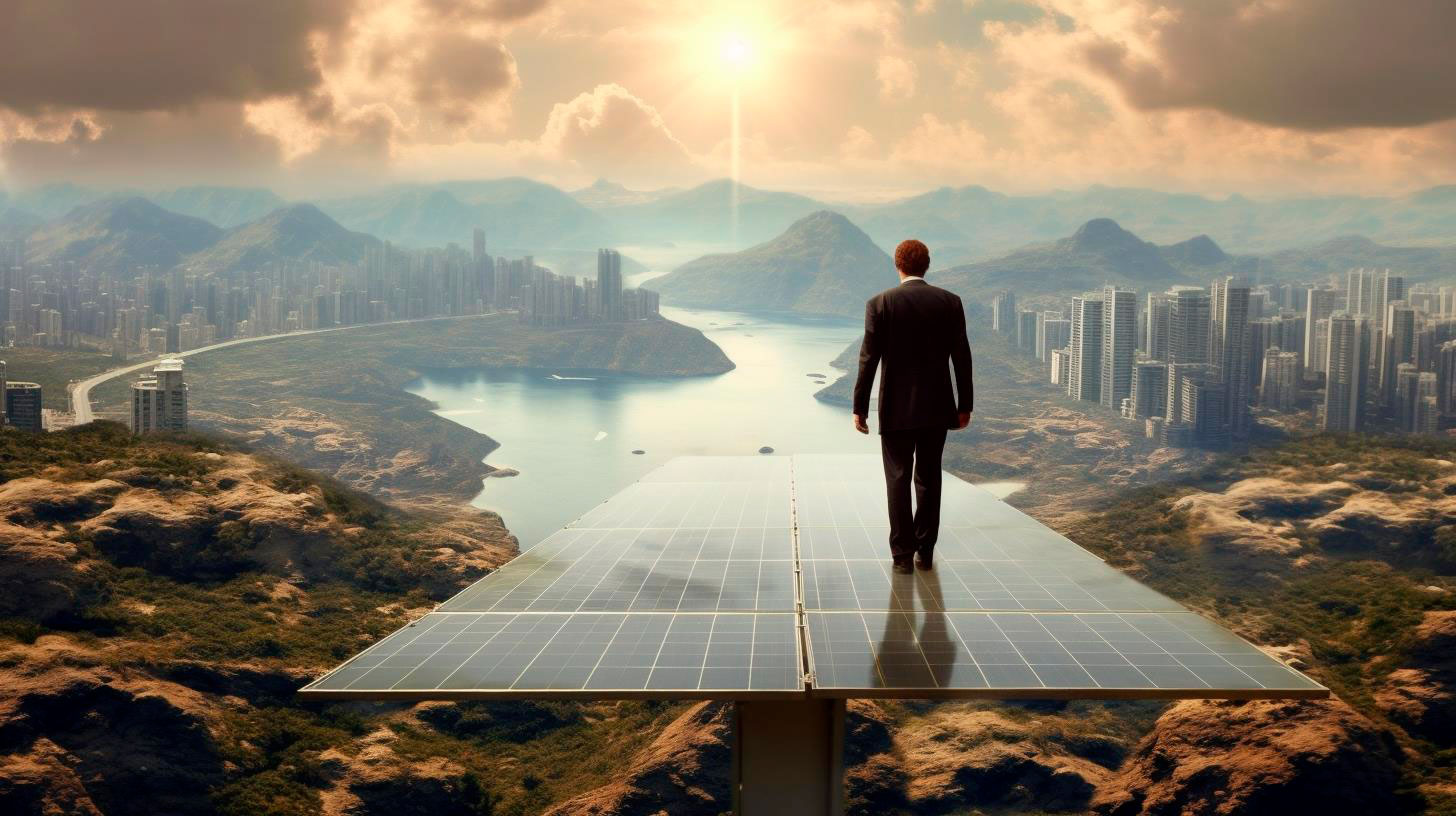Renewable Energy and Water Scarcity: A Promising Partnership
By integrating renewable energy technologies with water management systems, we can address both the essential need for clean water and the urgent need for eco-friendly power sources.
1. Mitigating Water Scarcity with Renewable Energy:
Water scarcity affects over 2 billion people worldwide, and this number is projected to rise in the coming decades. Traditional methods of water extraction and treatment are energy-intensive and often rely on fossil fuels. Integrating renewable energy sources into water management systems can alleviate these challenges and provide several advantages:
- Eco-friendly Desalination: Desalination is a process used to make seawater usable for drinking and irrigation. While conventional desalination plants heavily rely on fossil fuels, renewable energy-powered desalination plants have emerged as a sustainable alternative. By utilizing solar or wind energy, these plants can convert seawater into freshwater without contributing to carbon emissions.
- Energy-efficient Water Distribution: Water distribution networks require energy to pump water from its source to consumers. By integrating renewable energy with these systems, we can reduce reliance on fossil fuel-powered pumps, resulting in significant energy savings and a reduction in greenhouse gas emissions.
- Smart Irrigation Systems: Agriculture accounts for a significant portion of global water consumption. Implementing smart irrigation systems powered by renewable energy can optimize water usage by delivering the right amount of water directly to plants based on weather conditions and soil moisture levels. This approach minimizes water wastage and reduces the energy required for irrigation.
- Water Recycling and Treatment: Efficient water recycling and treatment processes are crucial for conserving this precious resource. Renewable energy technologies can power advanced treatment systems, ensuring that wastewater is safely and sustainably purified for reuse. By reducing the energy demands of water treatment, we can lower the overall carbon footprint associated with water management.
2. The Synergy of Renewable Energy and Water Conservation:
Renewable energy and water conservation initiatives go hand in hand, amplifying their collective impact. By embracing this partnership, we can unlock numerous benefits:
- Sustainable Development: Combining renewable energy and water conservation promotes sustainable development by effectively addressing two critical global challenges simultaneously. This synergistic approach maximizes resource efficiency and minimizes the strain on ecosystems.
- Climate Change Mitigation: The energy sector is a significant contributor to global greenhouse gas emissions. By transitioning to renewable energy sources, we can reduce carbon emissions and combat climate change. Simultaneously, water conservation practices can help counter the impacts of climate change on water availability and quality.
- Job Creation: The renewable energy and water sectors offer significant opportunities for job creation. As these industries grow, skilled professionals are needed to design, install, and maintain renewable energy systems, as well as manage water resources effectively. This partnership can drive economic growth, benefitting both the environment and local communities.
- Resilient Infrastructure: Traditional energy and water systems are vulnerable to disruptions caused by extreme weather events and aging infrastructure. Integrating renewable energy with water management fosters resilience by diversifying energy sources, reducing dependency on centralized systems, and improving overall system reliability.
3. Key Takeaways:
Renewable energy and water scarcity are intertwined challenges that require integrated solutions. By harnessing the power of renewable energy technologies and adopting sustainable water management practices, we can forge a promising partnership that benefits both the environment and society. Some key takeaways from this article include:
- The combination of renewable energy and water management addresses the challenges of water scarcity and the need for clean energy.
- Renewable energy-powered desalination plants offer eco-friendly solutions to convert seawater into freshwater.
- Integrating renewable energy with water distribution networks and irrigation systems enhances energy efficiency and reduces carbon emissions.
- Renewable energy enables advanced water treatment processes, ensuring sustainable purification and recycling of wastewater.
- Embracing the synergy of renewable energy and water conservation promotes sustainable development, mitigates climate change, creates jobs, and strengthens infrastructure resilience.
As we strive for a sustainable future, leveraging the potential of renewable energy and water conservation paves the way for a greener and more water-secure world. By implementing innovative solutions and joining forces across sectors, we can alleviate the challenges of water scarcity while nurturing a cleaner and more sustainable planet.
